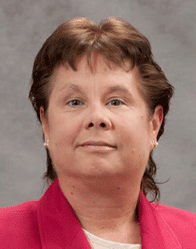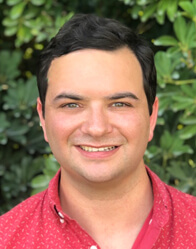Season 1 – Episode 52 – Affirmative Action and College Admissions
What does the recent United States Supreme Court ruling on affirmative action mean for higher education? Simply put, the ruling eliminates the consideration of race in college admissions. This decision resulted from two pivotal cases: Students for Fair Admissions v. President and Fellows of Harvard College and Students for Fair Admissions v. University of North Carolina. It has raised concerns among advocates nationwide about the future representation and diversity in college campuses and various fields like STEM.
Episode Transcript
Click to expand/collapse
Darren Gaddis: From CITI Program, I’m Darren Gaddis and this is On Campus. Today, affirmative action and higher education admissions. I spoke with Denise O’Neill, the Director of Enrollment Management at Pennsylvania State University, Lehigh Valley. As a reminder, this podcast is for educational purposes only. It is not intended to provide legal advice or guidance. You should consult with your organization’s attorneys if you have questions or concerns about relevant laws and regulations discussed in this podcast. Additionally, the views expressed in this podcast are solely those of the guest and do not represent the views of their employer. Hi Denise. Thank you for joining me today.
Denise O’Neill: Thanks Darren for having me. Happy to be here.
Darren Gaddis: To get us started today, what is your educational and professional background?
Denise O’Neill: I’ve spent the last 30 years in higher education. Most have been in senior level student affairs roles, assistant dean, associate dean, and dean of students. Most recently I gravitated from student affairs over to enrollment management, where I serve as the senior enrollment officer at Penn State Lehigh Valley, one of the many Penn State campuses throughout Pennsylvania. Had the opportunity to serve at a variety of institutions, two year, four year, private, public, all women’s Catholic and also comprehensive one with a law school, medical school, and undergrad and graduate programs.
Darren Gaddis: Our conversation today is around all things affirmative action and higher education. To help us ground our conversation today, what is affirmative action?
Denise O’Neill: That’s a great starting question. Many things come to mind with affirmative action. For me, the first thing that comes to mind is the Civil Rights Movement and the sixties and all the history that comes with that. And it’s spilled over into higher education, but it’s the practice of considering an admission student background character, such as race, ethnicity, gender as factors in whether or not we consider an applicant. But it’s also in conjunction with holistic review, all the characteristics and all of the background of candidates in meeting the admissions criteria. I think the major aim was to eliminate unlawful and unethical bias and discrimination that had occurred when admitting college students, because that we know was a practice. And to increase historically underrepresented groups that had occurred through time, whether that was students of color, whether it was black, Latino, or students with multiple backgrounds.
Affirmative action practices such as collecting demographic background when you apply for a job, such as race, gender, and ethnicity, they ensure that you start with a diverse and have the potential to offer opportunities for positions to applicants that have been overlooked in the process but yet have the same potential for success as those that are actually higher. So the topic accounts for unequal educational systems before our students come to college in K through 12. We know that tax dollars are directly connected to funding for K through 12, and we know that not all communities are diverse. There’s a lot of research that says our communities are still segregated in some regard. So when students apply for college, some groups lack equitable resources, equitable opportunity before they even reach the next level, whether it’s college or employment. So that’s a little bit of the background of affirmative action and it’s what comes to mind when you pose that question.
Darren Gaddis: As our listeners are more than likely aware, the US Supreme Court made a decision this past summer around affirmative action. Could you briefly summarize what this court case was about?
Denise O’Neill: I think the group that’s mentioned the most with the two cases that were actually lumped together, which we know is common practice at the Supreme Court, has multiple cases at the same time. They have a practice of hearing them at the same time when it reaches the Supreme Court. And there was a group led by a legal strategist, part of an organization called Students for Fair Admissions, known for fighting affirmative action. And there were actually two cases that were a part of it, one from Harvard that say that their admissions policies unlawfully discriminated against Asian-American applicants, and those were the complainants in that particular case. The other one that was linked with the Harvard case was the University of North Carolina, and they said that they unlawfully discriminated against both white and Asian-American applicants.
Both schools rejected the claims saying that race is only a determinant in a small number of instances and that it’s a part of holistic review. It’s not a sole criteria in any regard for admissions to the university. And they showed that the practice in barring that consideration as part of the review process would have a significant drop in the number of minority students that apply and that are on campus. And in the past, there were cases from the University of Texas and in other states that supported race conscious admissions, but we all know that the Supreme Court has changed its makeup and now we have six conservative justices and three liberals, so that’s had an impact. That’s where we’re at right now currently with the most recent decision from June.
Darren Gaddis: And how did this US Supreme Court decision impact admissions within higher education?
Denise O’Neill: The main impact is that colleges will not be able to legally collect race-based information on the admissions’ application. The decision this summer has forced elite colleges in particular to revamp their policies and search for new ways to ensure that diversity is within their student population, which is a primary goal. The impact, less students of color may be attending higher education, and maybe less might even apply because they feel that they’re missing considerations that were afforded to prior generations. Less may be graduating, less entry into certain professions that are already underrepresented. We know there are certain professions that are more underrepresented than others, especially in the STEM fields, and there’s a large number of vacant positions right now, whether it’s in academic fields or otherwise, and we actually need to have a larger pool of applicants in general. So it’s going to take the diverse makeup of our communities to fill those gaps.
The impact is also delayed. We were well into our admission cycle for ’23/’24, so it’ll take one cycle up to ’24/’25 to see the true impact. This current cycle was almost complete before the decision, but we do know that there are nine states that already disallow race-based admissions practices, and the impact was real in the first year that those states moved to disallowing race-based admissions practices, that as much as 50% decline in diversity of candidates occurred. So we may be facing similar numbers nationwide in the first year. That’s the original fair, but we have a little bit more advanced notice than we did in the past.
Darren Gaddis: Based on your own professional experience in higher education, how do you think the missions process will change during the 2024 and ’25 cycle?
Denise O’Neill: First and foremost, unlike the years of the other cases, you could trace it all the way back to 1978, but there were other cases in 2003 and also in 2016. In this instance, in 2023, we predicted that this would occur. So we had advanced notice, so there was more preparation on our part than the past. We saw similar cases from the Supreme Court in the past and I think we were under prepared, but now, like I said, with the six conservatives and three liberals on the Supreme Court, many predicted this, the ruling and the interpretation, so we weren’t surprised at all. Higher education with the advanced notice is probably asking some logical questions. What information are we allowed to collect? We know we’re not allowed to collect it as part of an admissions question on the application, but what information are we now allowed to collect?
The Biden administration just gave some guidance this week, but we won’t have additional guidance till the end of September. Another question will be if students provide information outside of the application process, how can it be used to achieve the same results yet stay 100% compliant with the legal precedent that’s been set? IE, can we use it if it’s a part of an admissions’ application? Because they did say if someone tells us a little bit about their story and we know from their story that they have a diverse background, can that be considered? And the answer is yes at the moment. Well, can we create more or less like an adversity score where there’s broad-based elements that go well beyond race, but consider [inaudible 00:09:57] issues that may be viewed as acceptable. And finally, we have to recognize that race is intricately intertwined with gender, ethnicity and class.
So can we create a new model of holistic review within admissions during the application and recruitment cycle that provides the same information, but we’re going to collect it in diverse ways. Often high schools and even some four year colleges, community colleges, and community agencies already have the information that we need. We know demographics from our communities because we study them. So now how do we collect them in different ways and use that data to get similar results? I think the reality is simple. Communities are becoming more diverse, and we realized that the traditional age population’s shrinking. We actually should be more welcoming of everyone that wants to apply to college, not less welcoming. We have to find those methodologies.
Darren Gaddis: Could you tell me a little bit more about the Biden Harris administration guidance document that you just referenced?
Denise O’Neill: Absolutely. It wasn’t as detailed as we would like, but it did give some helpful pieces of information. Number one, race is a factor in and of itself, we know is now illegal, so that has to be suppressed or removed from our application material. But how race has affected life experiences can be considered, let’s say it’s part of a scholarship application or an application essay. We can use that. They also said that we have to double down on retention. Articles mentioned that retention becomes more of a factor. So we have to make sure that we are putting efforts into our existing student population. But we all know that states that have banned affirmative action practice have fewer students of color applying, fewer students being admitted, and fewer students graduating. So they want to make sure that we find other ways to welcome those students and support them throughout their journey. They also show that there is really not a lot of room for saving spaces for specific groups of people. So that’s something that was cautionary in the research that was released this week.
Darren Gaddis: And do you think the end of affirmative action will have wider and mission policy implications in the coming years?
Denise O’Neill: On the heels of affirmative action, I think we now have the legacy court case coming forward, so I think the two of them are going to be intricately linked. The Harvard case that deals with legacy as well provides privileges to alumni and relatives of current applicants, and they may fall into the same category as the race based decisions. So you might find some of the data being used in the affirmative action case now being used with privileges to relatives who had the opportunity to go to the same college and thus bumping otherwise qualified applications.
So this case will be heard in the upcoming year, so that’s going to be a definite impact. In terms of legacy in and of itself, they mentioned that 70% of the university legacy applicants were actually not students of color, Harvard responded, but only 5% of them are admitted. So that data that’s present in the affirmative action case is going to be used in the next case because they’re going to have to prove all the numbers that were offered and put into the Supreme Court case this time. Now that the Supreme Court has outlawed race conscious admissions, you have to look at other ways to manage some of the diversity, but also take a look at other privileges that might be viewed as unequal or unfair treatment during the admissions process, such as legacy.
Darren Gaddis: What else should we know about affirmative action and higher education and admissions?
Denise O’Neill: Is it really the end of affirmative action? I’m not really sure. It remains to be seen. It could be, but it also could challenge us to take a look at things in a different way. So I’m not really sure if it will be the end. Remains to be seen. The perception of fairness and equity and inclusion at all levels and in all environments is the larger ethical and moral issue. Higher ed is just a part of that. Affirmative action elimination in college admissions, along with the legacy decision that’ll be decided this year won’t really correct all the injustices and unfairness that occurred K through 12, and in work environments, and our living communities. Most of our educational systems and our workplace educational opportunities are often leading with unequal financial resources and learning discrepancies. So it unfolds in many ways, education and career opportunities really should be available to everyone, and we should reward organizations, all organizations that are welcome and supportive. It’s truly an issue of belonging and inclusion more so than race.
Darren Gaddis: Denise, thank you for joining me today.
Denise O’Neill: Thanks for having me.
Darren Gaddis: Thank you for listening to today’s episode, and be sure to follow, like and subscribe to On Campus with CITI program to stay in the know. If you enjoyed this podcast, you may also be interested in other podcasts from CITI program, including On Research and On Tech Ethics. Please visit CITI Program’s website to learn more about all of our offerings at www.citiprogram.org. I also invite you to review our content offerings regularly as we are continually adding new courses, subscriptions, and webinars that may be of interest to you like CITI Program’s Mental Health and College Students course. All of our content is available to you anytime through individual and organizational subscriptions.
How to Listen and Subscribe to the Podcast
You can find On Campus with CITI Program available from several of the most popular podcast services. Subscribe on your favorite platform to receive updates when episodes are newly released. You can also subscribe to this podcast, by pasting “https://feeds.buzzsprout.com/1896915.rss” into your your podcast apps.
Recent Episodes
- Episode 51: Collegiate Athletic Conferences
- Episode 50: Trans and Nonbinary Students Experiences in College
- Episode 49: LGBTQIA+ Students and STEM Majors
- Episode 48: Conflict in the Classroom
Meet the Guest

Denise O’Neill, PhD – Penn State University, Lehigh Valley
Denise O’Neill is currently the Director of Enrollment Management at Penn State Lehigh. Primary responsibilities include admissions, financial aid, various grant-funded student success programs, and Title IX. With over 25 years of progressive experience in leadership, administration, teaching and supervision in higher education, she has served in various leadership roles.
Meet the Host
Darren Gaddis, Host, On Campus Podcast – CITI Program
He is the host of the CITI Program’s higher education podcast. Mr. Gaddis received his BA from University of North Florida, MA from The George Washington University, and is currently a doctoral student at Florida State University.










